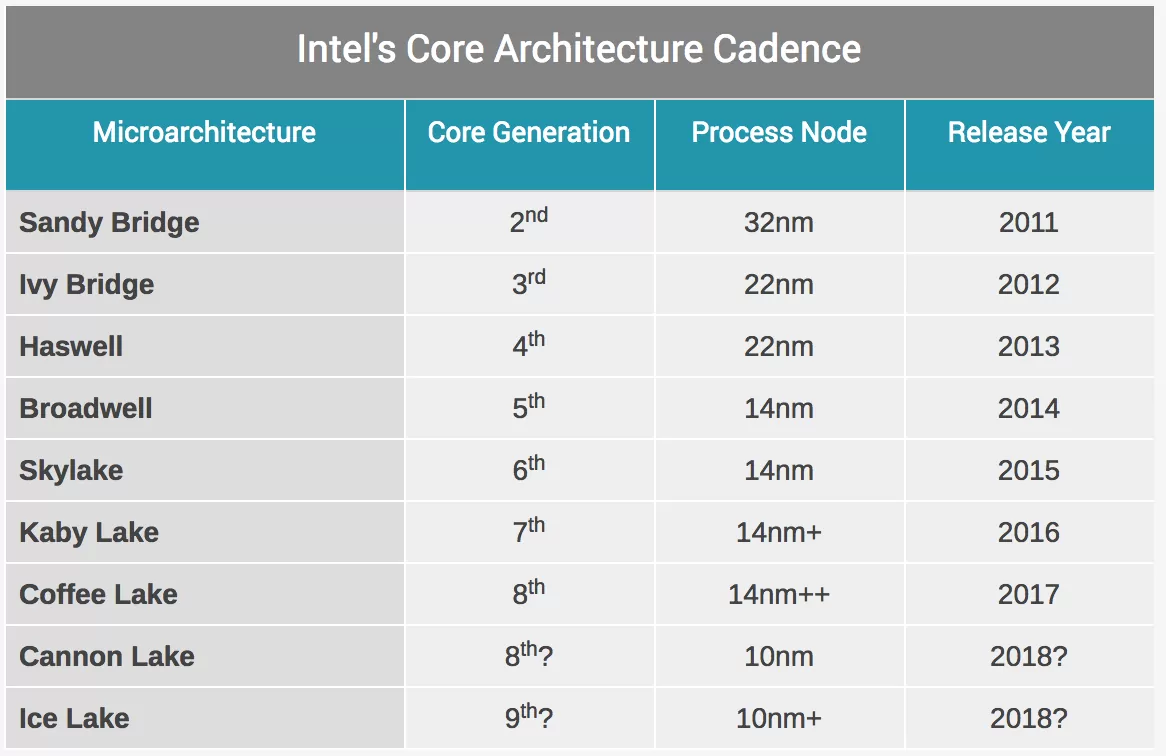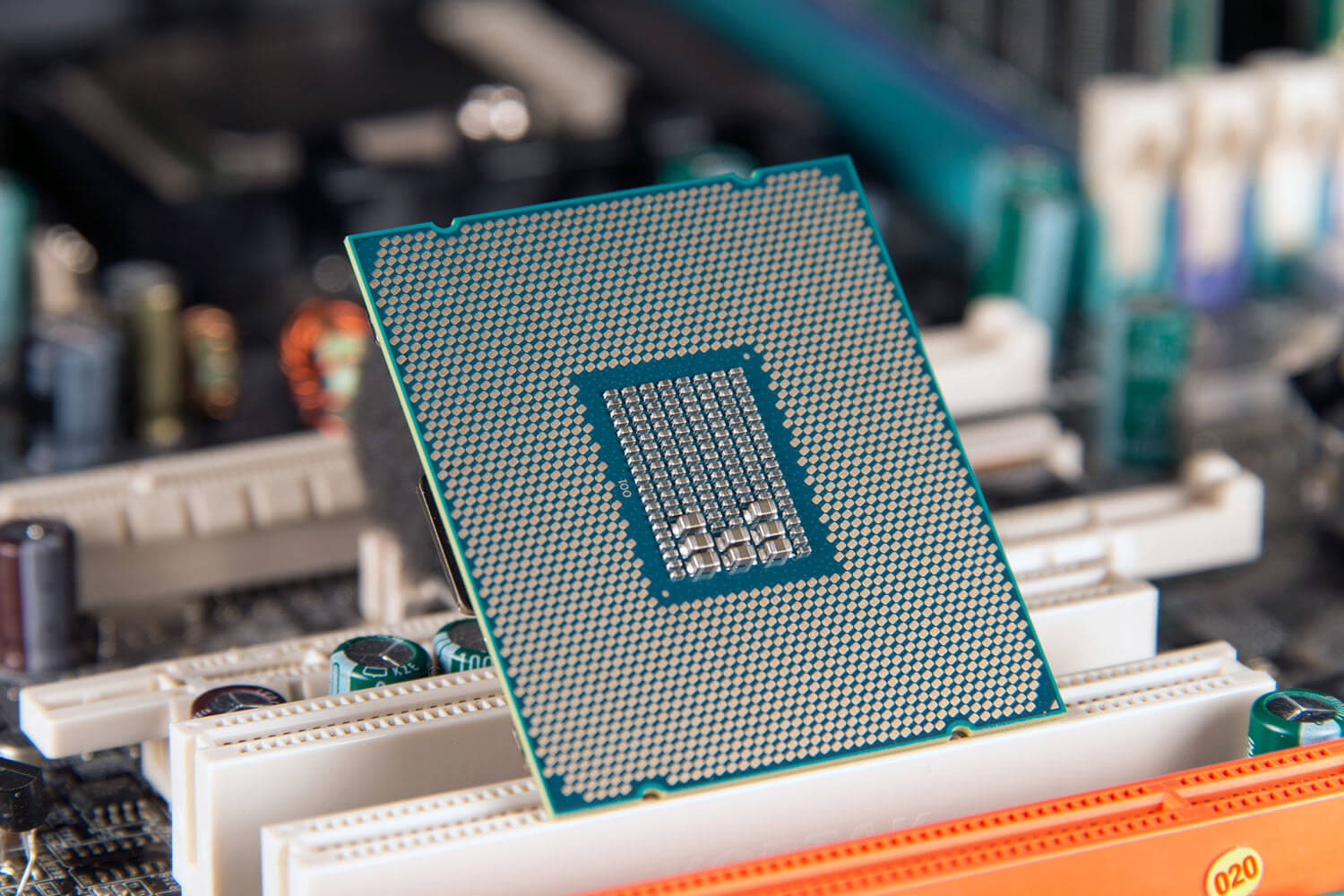Intel is set to unveil its 8th-generation Coffee Lake processors next week (August 21), but the company has already released a snippet of information about one of its successors: Ice Lake.
Intel has confirmed that this member of the 9th-generation Core family would be made on its 10nm+ process. On its codename decoder website, Intel wrote: "The Ice Lake processor family is a successor to the 8th generation Intel® Core™ processor family. These processors utilize Intel's industry-leading 10 nm+ process technology."

Intel refers to Ice Lake as the successor to the upcoming 14nm++ Coffee Lake, which has led to some confusion about where Cannon Lake, the first 10nm chip, stands. AnandTech speculates that due to the difficulty in developing the 10-nanometer architecture, Cannon Lake will be focused on smaller, mobile CPUs that are easier to make when chip yields are poor. Once Intel develops its 10nm fabrication process further, it will move onto the larger 10nm+ Ice Lake processors for desktops.
Simply put, the first generation of 10nm requires small processors to ensure high yields. Intel seems to be putting the smaller die sizes (i.e. anything under 15W for a laptop) into the 10nm Cannon Lake bucket, while the larger 35W+ chips will be on 14++ Coffee Lake, a tried and tested sub-node for larger CPUs. While the desktop sits on 14++ for a bit longer, it gives time for Intel to further develop their 10nm fabrication abilities, leading to their 10+ process for larger chips by working their other large chip segments (FPGA, MIC) first.
Cannon Lake chips are scheduled to launch in 2018. Being the successor to the 8th-generation Core family, Ice Lake will likely arrive in either late 2018 or 2019. Its exact release date may depend on when Intel can perfect the larger chips and its 10nm+ process.
Back in June, Intel tweeted that Cannon lake was "on track" and that it had "taped in" Ice Lake.
Another milestone for 10nm: Cannon Lake on track and we've now taped in Ice Lake, our 2nd-generation 10nm product. pic.twitter.com/DUDm3MsBaB
--- Intel Official News (@intelnews) June 8, 2017
